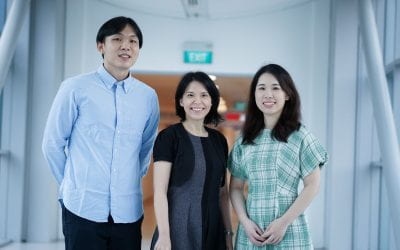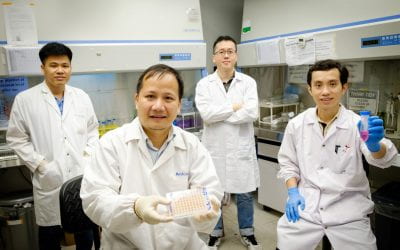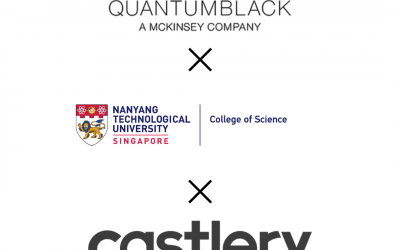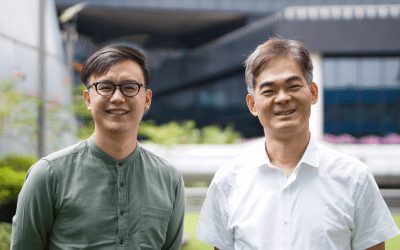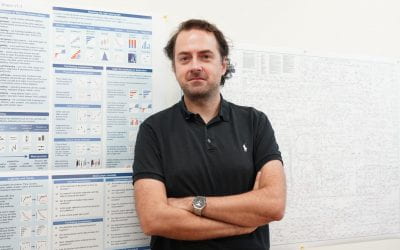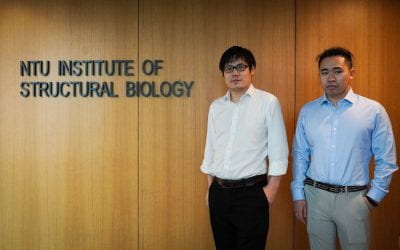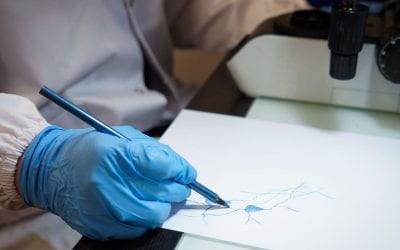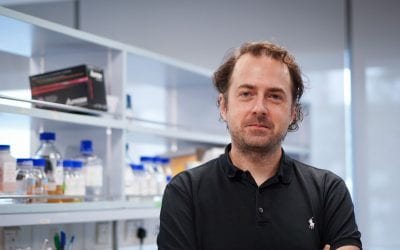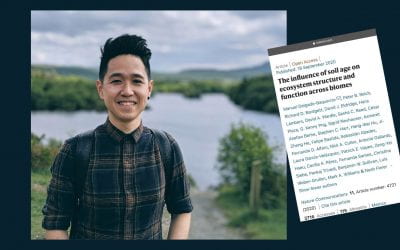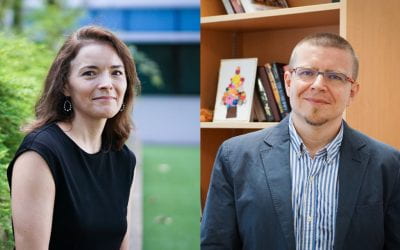Discovering the first silencers that loop to regulate its target genes in the human genome, Assistant Professor Fullwood and her team might just be one step closer to finding a method for curing cancer.
NTU Singapore scientists design compound that targets enzyme linked to autoimmune disorders and severe COVID-19
When the body detects a pathogen, such as bacteria or viruses, it mounts an immune system response to fight this invader. In some people, the immune system overreacts, resulting in an overactive immune response that causes the body to injure itself, which may prove fatal in some cases.
Now, scientists from Nanyang Technological University, Singapore (NTU Singapore) have created a compound that could help to reduce this overactivation without impairing the body’s entire immune response.
Experiential Learning Using Real-World Data: Quantum Black X CoS X Castlery
NTU College of Science (CoS) has recently established a partnership with Quantum Black, a McKinsey company. They specialize in analytics and will provide case study mentorship for some of our CoS students. For a start, Quantum Black and CoS co-designed a case study-centric course for the School of Biological Sciences (SBS) MSc in Biomedical Data Science programme. CoS will work towards expanding this partnership so that more of our students will benefit in the future.
Finding Therapeutics in Extracellular Vesicles
Given their significance in cell-cell communication, Extracellular Vesicles (EV) have great therapeutic potential. In this read, Ph.D. student Tan Chee Fan and Associate Professor Sze Siu Kwan adapted a method to study EV protein levels from a different angle. A protein was also identified as a potential target for the regulation of EV biogenesis.
Approaching New Frontiers in Fungi Research
Working under Assistant Professor Marek Mutwil, a group of twenty-three SBS students from the module BS1009 have built and launched www.fungi.guru, a new informational resource for studying fungi.
Unravelling Uromodulin: On the helical reconstruction of proteins
As part of a team of researchers, Assistant Professor Wu Bin and PhD student Xu Chenrui of the School of Biological Sciences and the Institute of Structural Biology, have made a landmark discovery, mapping the three-dimensional atomic structure of the protein uromodulin for the first time.
A Question of Nature or Nurture: how early-life stress can be mitigated by environmental enrichment
In their latest research, Assistant Professor Rupshi Mitra, Dr Akshaya Hegde and Shruti Suresh of Team Resilieo delve into the applications of environmental enrichment as a curative approach.
Strength in Numbers: Research Amidst a Pandemic
With the help of several computers, the internet, and 285 undergraduate students, Assistant Professor Marek Mutwil’s data-sequencing project has opened up a whole new realm of possibilities in the field of antibiotic research.
Impact of Climate & Land Use Change Override Natural History in Influence on Forest Ecosystems, Global Study Shows
Global climatic and land-use changes are the factors that most strongly influence change in terrestrial ecosystems today, shows a recent global study published in Nature Communications co-authored by ASE researchers Dr Kenny Png and Professor David Wardle.
Two CoS faculty members win the John Cheung Social Media Award
Our warmest congratulations to Associate Professor Kimberly Kline and Dr Fedor Duzhin for winning the John Cheung Social Media Award for their innovative use of social media in teaching.

